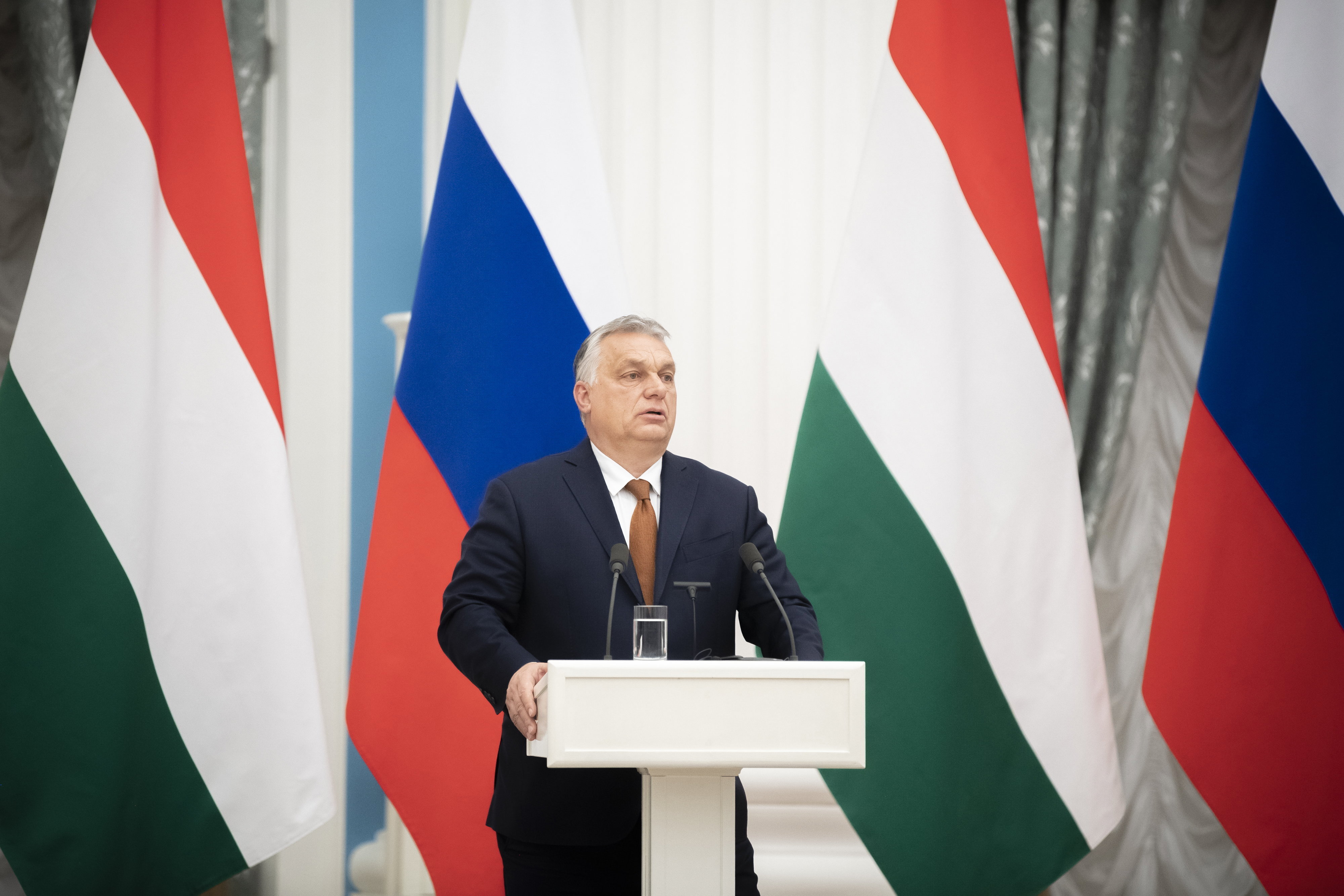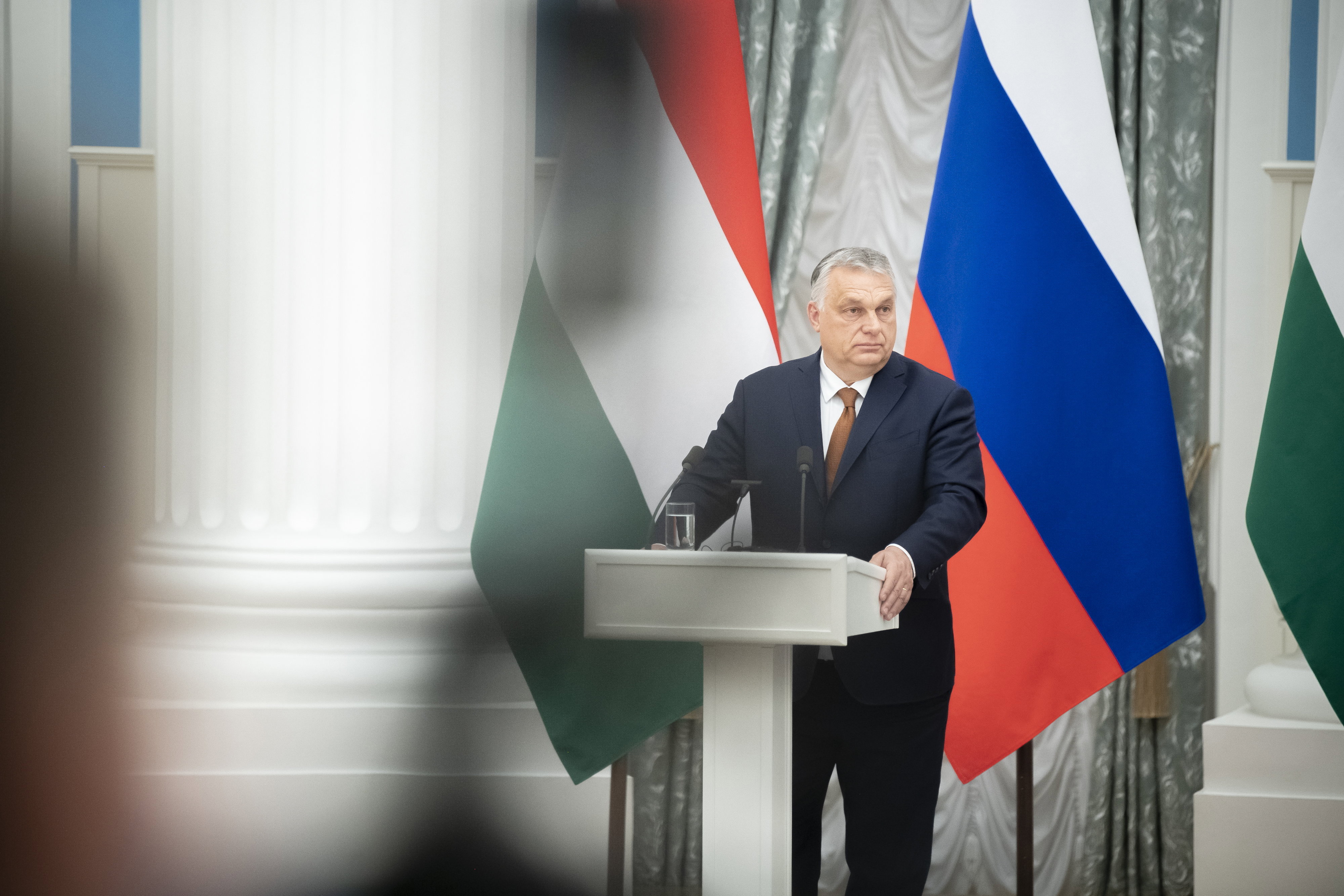
"What we can offer is the Hungarian model," Orbán said. Hungary, he noted, is a member of both NATO and the EU while enjoying "excellent ties" with Russia based on mutual respect.Continue reading

Substantive talks on increasing the amount of Russian long-term gas deliveries to Hungary by one billion cubic metres a year can move forward, Prime Minister Viktor Orbán said after five hours of talks with President Vladimir Putin in Moscow on Tuesday.
Orbán told a joint news conference that with Russian gas, the government’s scheme to keep household utility bills low would prove feasible, but without it, the scheme would come to an end. He noted that household gas and electricity prices in Europe, except in Hungary, had grown 2-3-fold.
With the agreement under negotiation, “we will secure Hungary’s energy supply permanently”, the prime minister said.
As the two countries’ long-term gas supply agreement will gain in importance in the future, the volume should be increased rather than reduced, he said.
Putin said Russia was open to further cooperation, and Hungary’s request was being considered. Supplying an additional one billion cubic metres would be easily manageable, he added.
Whereas Europe would encounter problems with its gas supply, he said, Hungary’s supply was secure thanks to its contract with Russia for 4.5 billion cubic metres of gas per year until 2036. Hungarian consumers, he added, had access to gas at well below the market price.
Putin said Hungary had continued to prove its reliability in transmitting deliveries of Russian natural gas.
Energy plays an important role in Russian-Hungarian economic relations, Putin noted, adding that Russia had been supplying energy to Hungary for many years without interruption, covering 55 percent of its oil consumption and 80 percent of its gas consumption.
He also noted that Hungarian oil and gas company MOL maintains oil production interests in Russia.
Putin noted that Russia supplied gas to Hungary under a long-term agreement and that the bilateral agreement has been extended until 2036. “Russia is open to further cooperation,” he added.
Concerning the upgrade of the Paks nuclear power plant, Orbán noted preparations for the project have entered the final phase, and as soon as the last permit is obtained “the next phase of implementation will automatically start, enabling us Hungarians to take the decisive step towards becoming independent in terms of electricity supply,” Orbán said, adding that generation system was on course to becoming climate neutral by 2030.
Orbán said Putin had agreed on setting up a Russian-Hungarian joint venture to be involved in the operation of a container terminal at the Ukrainian-Hungarian border. Hungary’s economy could benefit hugely, he added.
The prime minister noted that a large vaccine plant will soon start operating in Hungary, and it would be suitable for the production of Sputnik V. He trusted a final agreement was in sight, he added. Hungary plans to buy Sputnik Light, which it would manufacture, he said, adding that an assessment of the vaccine by the Hungarian authorities would conclude soon.
Meanwhile, Orbán discussed the possibility of increasing the number of Russian passenger planes to Hungary with a view to boosting Russian tourism in the country. He also raised the possibility of introducing direct flights to Budapest from Ekaterinburg and Kaliningrad.
Featured photo by Vivien Cher Benko/PM’s Press Office